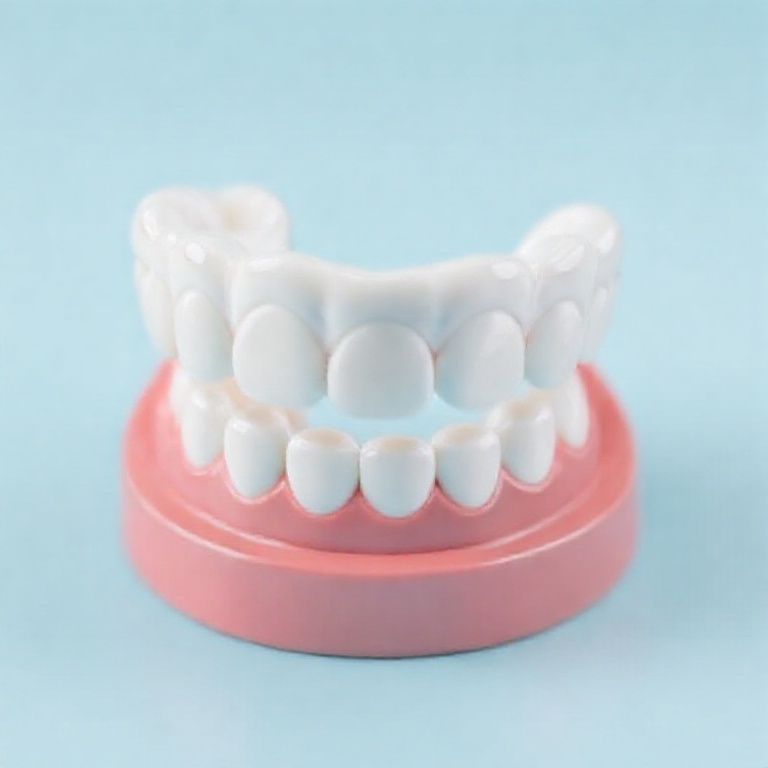Unveiling the dental bridge cost in karachi: A Comprehensive Guide for Savvy Smiles
A dazzling smile is a powerful asset, boosting confidence and making a lasting first impression. But missing teeth can cast a shadow on that brilliance, impacting not only aesthetics but also functionality when it comes to chewing and speaking. Thankfully, dental bridges offer a reliable solution to restore your complete smile and oral health.
This comprehensive guide dives deep into the intricacies of dental bridge costs in Karachi, empowering you to make informed decisions for your dental care journey. We’ll explore factors influencing price variations, delve into different bridge materials and their implications, and equip you with valuable tips to navigate your treatment options effectively.

Understanding Dental Bridges: A Bridge to a Brighter Smile
A dental bridge is a fixed prosthetic restoration designed to replace one or more missing teeth. It literally bridges the gap created by the missing teeth, functioning as a natural tooth would. The bridge itself consists of artificial teeth, called pontics, held in place by crowns cemented onto the healthy teeth flanking the gap. These anchoring teeth are crucial for supporting the bridge and maintaining its stability.
Dental bridges offer a multitude of benefits:
- Improved Aesthetics: Bridges restore the natural look of your smile, filling the void left by missing teeth and enhancing your overall facial appearance.
- Enhanced Functionality: Bridges allow for proper chewing and speaking, preventing the remaining teeth from shifting and compromising your oral function.
- Boosted Confidence: A complete and beautiful smile can significantly improve confidence and self-esteem.
- Durability and Stability: Modern dental bridges are crafted from strong, long-lasting materials, ensuring a reliable restoration for years to come.
Unveiling the Cost Factors: Why Bridge Prices Bridge a Gap
The cost of a dental bridge in Karachi is not a one-size-fits-all proposition. Several factors influence the final price tag, making it crucial to understand these dynamics before embarking on treatment. Here’s a breakdown of the key cost influencers:
- Number of Missing Teeth: The number of teeth your bridge needs to replace directly impacts the cost. A bridge spanning a single gap will naturally be less expensive compared to a bridge replacing multiple teeth.
- Material Selection: The material chosen for the bridge frame and pontics significantly affects the price. More robust and aesthetically pleasing materials like zirconia or porcelain will typically cost more than metal alloys. Let’s delve deeper into materials in a dedicated section below.
- Dentist’s Expertise and Experience: A highly qualified and experienced dentist with a proven track record in bridgework will likely command a higher fee compared to a less experienced practitioner. However, their expertise can ensure a higher success rate and a long-lasting bridge.
- Dental Clinic Location and Reputation: The location and reputation of the dental clinic can influence the cost. Clinics in posh areas or those with a premium reputation might have slightly higher fees compared to clinics in less central locations.
- Diagnostic Tests and Preparatory Procedures: Sometimes, additional diagnostic procedures like X-rays or scans might be necessary to assess your oral health and plan the bridge placement accurately. Additionally, procedures like root canal therapy on anchoring teeth might be needed before bridge placement, adding to the overall cost.
Estimated Cost Range for dental bridge cost in karachi(Subject to Variation)
| Number of Missing Teeth | Material | Cost Range (PKR) |
|---|---|---|
| Single Tooth | Metal Alloy | 4,500 – 8,000 |
| Single Tooth | Porcelain Fused to Metal (PFM) | 8,000 – 12,000 |
| Single Tooth | Zirconia | 12,000 – 18,000 |
| Multiple Teeth (Bridge Spanning 2-3 Teeth) | Metal Alloy | 9,000 – 15,000 |
| Multiple Teeth (Bridge Spanning 2-3 Teeth) | Porcelain Fused to Metal (PFM) | 15,000 – 22,000 |
| Multiple Teeth (Bridge Spanning 2-3 Teeth) | Zirconia | 20,000 – 30,000 |
Please note: This table provides a general estimate and actual costs may vary depending on the factors mentioned above. It’s always best to consult with a qualified dentist for a personalized cost assessment.
Material Matters: Unveiling the Bridge Material Spectrum
The material chosen for your dental bridge significantly impacts its aesthetics, durability, and ultimately, the cost. Here’s a closer look at the most commonly used bridge materials:
- Metal Alloy: This is a traditional and cost-effective option. However, the metal base might show through the porcelain, giving the bridge a less natural appearance. Additionally, some people might have allergic reactions to certain metal alloys.
- Porcelain Fused to Metal (PFM): This popular choice offers a good balance between aesthetics and affordability. The metal core provides strength, while the porcelain layer mimics the natural tooth color, creating a more natural look. However, the metal base might be slightly visible at the gum line over time.
- Zirconia: This advanced material boasts exceptional strength, durability, and a highly natural, translucent appearance that closely resembles natural teeth. Zirconia bridges are a perfect choice for those seeking the most aesthetically pleasing option, especially for front teeth. However, they are typically the most expensive bridge material.
- Full-Cast Zirconia: This is a newer variation of zirconia bridges, offering all the benefits of traditional zirconia with an even more natural look due to its ability to mimic the light-reflecting properties of natural teeth. As cutting-edge technology, full-cast zirconia bridges might be slightly more expensive than standard zirconia options.
Choosing the Right Material:
The ideal bridge material depends on several factors, including:
- Your budget: Metal alloys offer the most cost-effective option, while zirconia bridges are at the premium end.
- Location of the bridge: For front teeth, aesthetics are paramount, so zirconia or full-cast zirconia might be preferable. For back teeth, where aesthetics are less critical, PFM or metal alloys could be suitable options.
- Your personal preferences: Discuss your desired aesthetics and any potential allergies with your dentist to determine the best material for your needs.
Additional Considerations:
- Durability: Zirconia bridges are generally considered the most durable option, followed by PFM and then metal alloys.
- Gum Tissue Compatibility: Zirconia bridges are highly biocompatible with gum tissue, minimizing the risk of irritation.
Remember: Consulting with a qualified dentist is crucial to discuss your specific needs and preferences, allowing them to recommend the most suitable and cost-effective bridge material for your situation.
Beyond Cost: Exploring Additional Considerations
While cost is a significant factor, other aspects deserve consideration when making your bridgework decision:
- Dentist’s Expertise and Experience: Choose a dentist with proven experience and expertise in bridge placements. Look for positive patient reviews and inquire about the dentist’s qualifications and experience with bridgework.
- Dental Clinic Facilities and Technology: Modern dental clinics equipped with advanced technology like digital X-rays and computer-aided design (CAD)/computer-aided manufacturing (CAM) can ensure a more precise and efficient bridge creation process.
- Treatment Duration: The number of appointments and overall treatment duration can vary depending on the complexity of the bridge and your dentist’s workflow.
- Insurance Coverage: Dental insurance plans might offer partial coverage for bridgework. It’s essential to check your specific plan details to understand your coverage and potential out-of-pocket expenses.
Financing Your Bridgework: Making Your Smile Affordable
Dental bridges are an investment in your oral health and overall well-being. Here are some options to consider if cost is a concern:
- Financing Plans: Many dental clinics offer financing plans that allow you to spread the cost of your bridgework over convenient monthly installments.
- Dental Savings Plans: These plans offer discounted rates on dental procedures, including bridges.
- Comparison Shopping: Get quotes from several qualified dentists to compare costs and treatment plans before making a decision.
FAQs: Your Bridgework Questions Answered
Q: How long do dental bridges last?
A: With proper care, dental bridges can last for 7-15 years or even longer. Good oral hygiene practices like regular brushing, flossing, and professional cleanings are crucial for maintaining the longevity of your bridge.
Q: Does getting a dental bridge hurt?
A: The dentist will administer local anesthesia to numb the area before placing the bridge, minimizing any discomfort. You might experience some mild soreness or sensitivity after the procedure, which can be managed with over-the-counter pain medication.
Q: How do I care for my dental bridge?
A: Maintain a consistent oral hygiene routine, brushing twice daily and flossing once a day. Regular dental checkups and professional cleanings are also essential to ensure the health of your bridge and surrounding teeth.
Q: Are there any alternatives to dental bridges?
A: Depending on your specific situation, dental implants or dentures might be alternative options for replacing missing teeth. Discuss these options with your dentist to determine the most suitable solution for your needs.
Conclusion:
Dental bridges offer a reliable and aesthetically pleasing solution to restore missing teeth and enhance your oral health. By understanding the cost factors, material options, and additional considerations, you can make an informed decision about bridgework.
You might also want to check out these articles for more ideas:Dental Bonding costs in Pakistan


